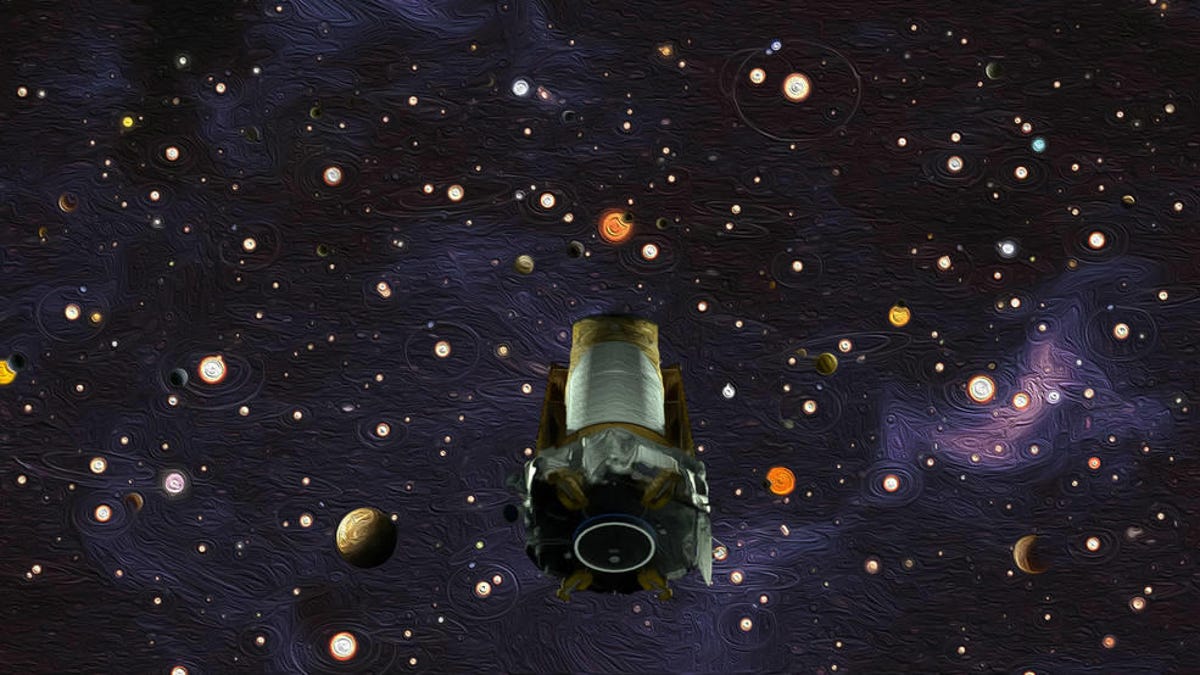NASA says Kepler Space Telescope is out of fuel and out of time
The space telescope, which revealed a universe full of planets that might be similar to our own, is now retired.

This oil painting depicts Kepler among some of the many exoplanets it helped astronomers discover.
NASA's Kepler Space Telescope, which launched in 2009 and revolutionized our vision of the galaxy and the universe over the past decade, is now permanently retired and out of service.
The space agency first saw signs Kepler was running out of gas earlier this year and last week the telescope went into a low-fuel sleep mode. NASA said Tuesday that the spacecraft won't be waking up.
"Science operations are over," NASA astrophysics division director Paul Hertz told reporters on a conference call.
He noted that Kepler was able to confirm scientists' suspicions that space is filled with planets similar to Earth. Kepler's catalog of confirmed planets beyond our solar system includes over 2,600 worlds and dozens that could potentially support alien life. While the telescope is done collecting new data, Hertz says astronomers are still working with what's been collected over the years.
"Kepler data will continue to yield scientific discoveries for years to come."
When the spacecraft's "low fuel light" came on earlier this year, the Kepler team began to take measures to ensure that all remaining data could be recovered and downloaded before it went dark for good.
"In the end we didn't have a drop of fuel leftover for anything else," said Kepler project system engineer Charlie Sobeck.
Kepler had already been operating on borrowed time for years after one of the craft's reaction wheels, which help it point at its target stars, began to fail in 2012. Engineers came up with a way to use pressure from sunlight itself to stabilize and point Kepler, and the new adapted mission, dubbed K2, went on to discover more planets for another half decade.
"When we started conceiving this mission 35 years ago we didn't know of a single planet outside our solar system," said the Kepler mission's founding principal investigator, William Borucki, now retired, in a news release. "Now that we know planets are everywhere, Kepler has set us on a new course that's full of promise for future generations to explore our galaxy."
One of Kepler's successors is currently in space and searching for new planets. NASA's Transiting Exoplanet Survey Satellite has already spotted its first pair of Earth-like planets and will continue to catalog dozens more. The hope is that the upcoming James Webb Space Telescope (a supersize, 21st century follow-up to Hubble) will be able to take a much closer look and perhaps even look for signs of life on the worlds that TESS and Kepler have pointed us toward.
NASA turns 60: The space agency has taken humanity farther than anyone else, and it has plans to go further.
Crowd Control: A crowdsourced science fiction novel written by CNET readers.

